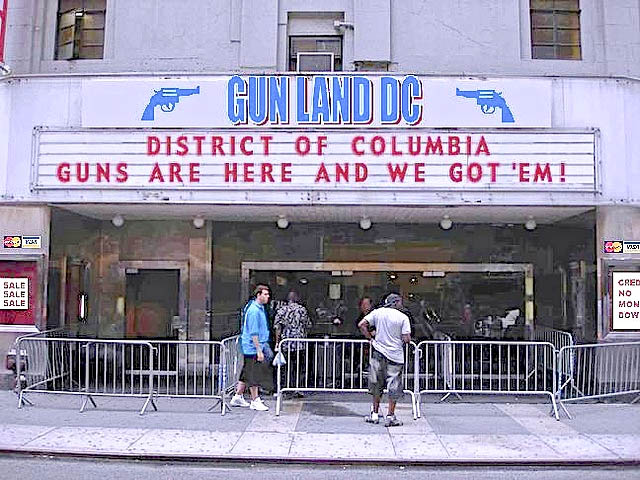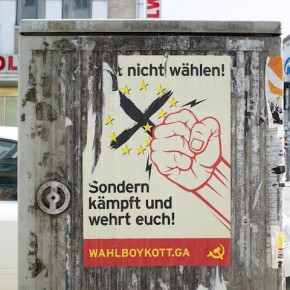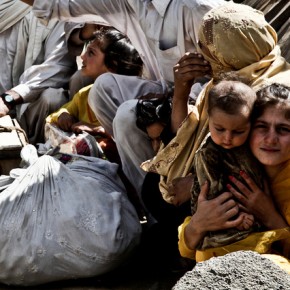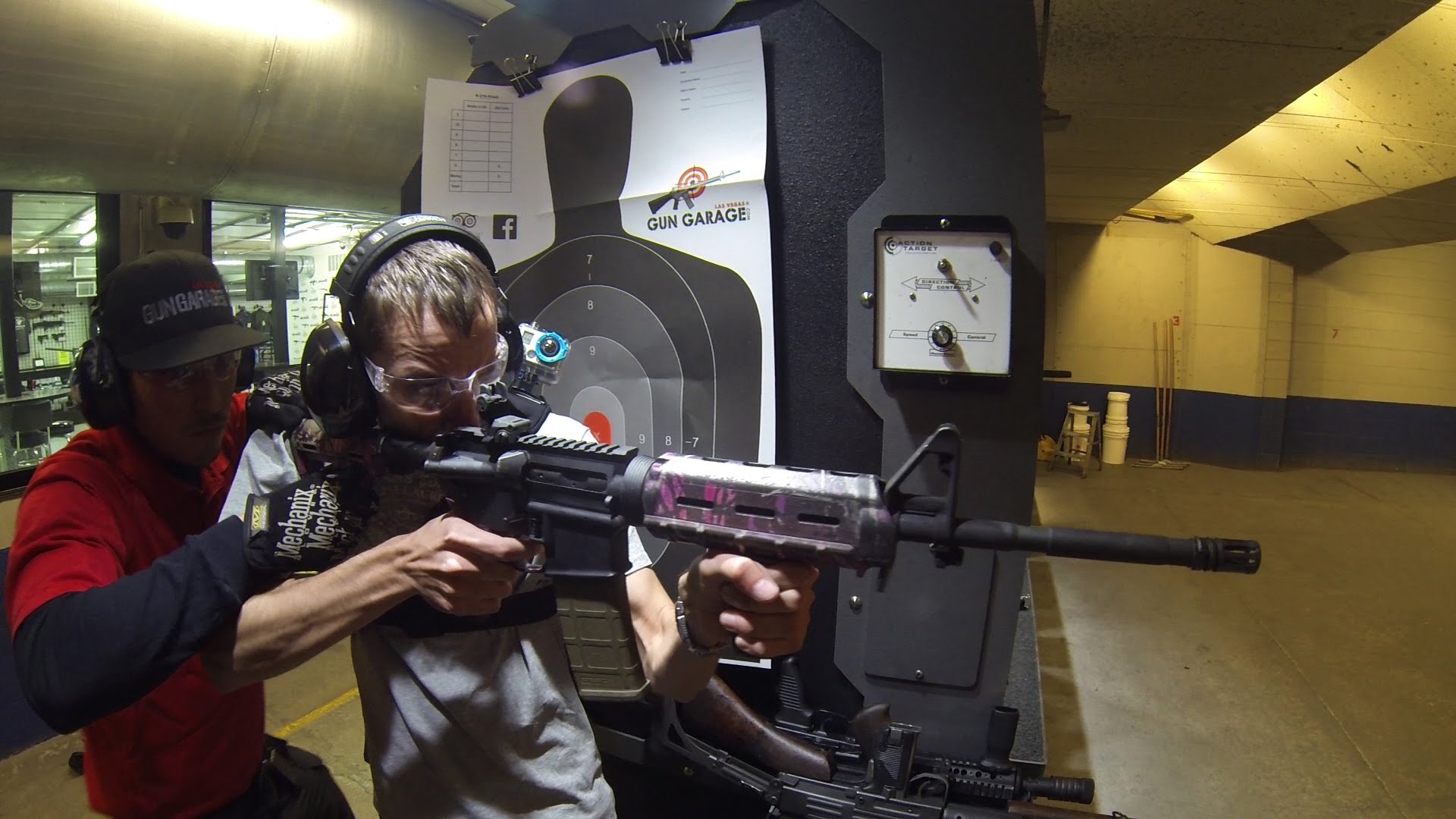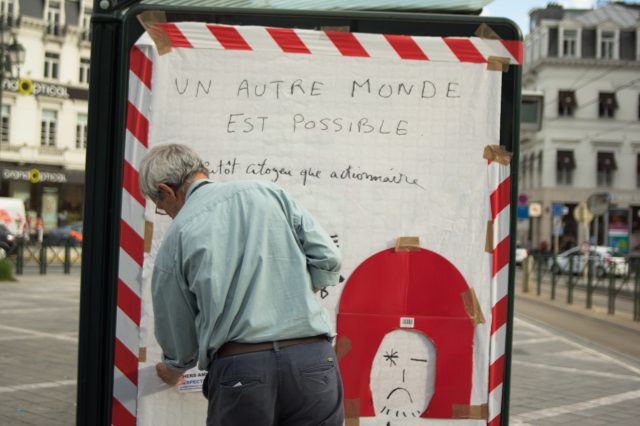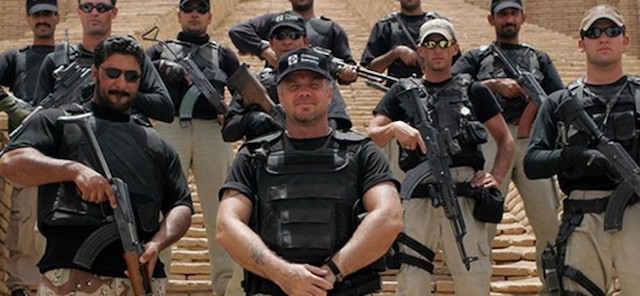After each needless slaughter in an American city or town by a lunatic who had easy, legal access to firearms, liberals find themselves creating a whole host of narratives to explain the gun culture that makes the United States stand out among industrialized nations for its epidemic of gun violence.
For some, there’s a geographic divide that stunts any productive debate about guns. We here in New York and California, clutching our lattes and organic muffins, just don’t understand how important pick-up trucks and assault rifles are to the citizens of rural America. For others, it’s the culture of fear, that no matter what crime statistics say, Americans are convinced there’s always someone creeping up on them.
Another view is that conservatives see the Constitution as holy word that can’t be altered, despite the fact that such a strict reading of the Second Amendment would have us packing muskets at the instruction of militia leaders, just as the framers had envisioned. A great many take comfort in the idea that people, particularly men, who are sensitive about access to high-powered weaponry are engaging in a Freudian attempt to compensate for their physical inadequacies. This latter point often seems likely when we reflect on the Santa Barbara killer’s rationale to acquire guns and kill wantonly precisely because of unfulfilled sexual desires.
Each of these explanations, we believe, find their way into the National Rifle Association and other powerful voting blocs that restrict open discussion about addressing our gun laws. All of these tales have a bit of truth, but what’s absent is a materialist view of the situation, often because there is a faction on the radical left that dismisses the gun control debate as a social issue that distracts us from class struggle. Yet our national intransigence on addressing gun violence in America comes down to the power guns have as commodities.
In a New York Times op-ed, a hunter from Oregon, Lily Raff McCaulou, noted that the NRA claims to represent the honest sportspeople of the nation, when in fact while the NRA has four million members, there are 50 million gun owners in the nation, and as such, the majority of actual, ordinary gun owners–hunters, competitive shooters, law enforcement and security personnel etc. – aren’t represented. Many police groups, not thought of for their liberalism, have pushed for gun restrictions since their members are the ones who are literally in the line of fire.

Rather, lobbying pressure in our no-limits spending system, comes not from individual gun owners but from capitalists, gun manufacturers, whose revenues could be imperiled by new legislation. Every battlefield, from Afghanistan to the crime filled streets of the south side of Chicago, is a potential market for the arms industry. The anti-war movement, drug legalization activists and relatives of those killed by gun violence calling for sanity are just simply bad for business.
It’s important to note that the libertarian and right-wing reaction to gun control that clouds the corporate interests in the mainstream press is couched in terms of government attempts to suppress our freedom. But we don’t hear that same reaction from these talking heads on other constitutional freedoms that have been eviscerated since 9/11. (See Jon Stewart’s brilliant breakdown of this phenomenon.)
That’s because freedom, for those on the right, can’t be understood when the commodity form isn’t present; the right to walk down the street without being stopped and frisked, the right not be spied on by the government, or the right to privacy in general are nebulous and not tangible, but our liberty to buy or consume something is easier to understand. That’s why a libertarian magazine like Reason can, without self-parody, accuse former New York City Mayor Michael Bloomberg of being an authoritarian because of his proposals to curb junk food sales and yet not even mention police spying on Muslims or the targeting of black and Latino youths.
So too it goes with anything that infringes our ability to walk into a Walmart and buy an object specifically intended for killing other people. Freedom, it is perceived, comes from our guns. The nation is proud that it was founded by armed conflict with a colonial power, though this hardly makes the United States unique. Packing heat doesn’t just protect us from theoretical muggers or the occasional grizzly bear but a government that is ready and willing to take away everything else we know and love. The Second Amendment, it is said, is protects the other freedoms in the Bill of Rights.

The ability to consume is the most acceptable way to understand one’s freedom, which is why the libertarian and right-wing concept of freedom is symbolized by the gun and its ease of purchase. So it’s no mistake that such an understanding binds us to the idea that the principle of exchange is the truest form of freedom.
The right is sometimes willing to admit this. Writers at the right-wing National Review have on more than one occasion used the threat of job cuts in American gun manufacturing to persuade economic liberals against restrictions on guns. It’s a kind of civilian version of military Keynesianism that doesn’t mourn victims of gun violence, but rather sees them as positive economic indicators because they signify more bullets, arms and amour bought and sold. In Karl Marx and Friedrich Engels’s own words, those sons, daughters, mothers and fathers lost to our liberal gun laws are “drowned…in the icy water of egotistical calculation.”
And look at the exceptions that prove the rule. For example, conservative hero Ronald Reagan, as California governor, signed the restrictive Mulford Act in the face of opposition from the left-wing, black radical group the Black Panthers, who believed guns were necessary to prevent racist violence. Sure, militiamen swarmed to Nevada to point guns at federal agents when they perceived that the bourgeois private property rights of cattle rancher named Cliven Bundy (who, as an aside, thought slavery was a good idea) were under threat. Yet, where were those so-called freedom fighters when militarized police attacked Occupy Wall Street protesters, and in one case, nearly killed an Iraq War veteran? The freedom one gets out of a gun is glued to a very specific ideology that OWS demonstrators dared challenge.
All this is to say Americans shouldn’t dismiss our national inability to confront gun violence as mere nuttiness. Those with the most skin in this game, the arms manufacturers, oppose restraint desired by the public the same way that corporations fight climate science, calls to raise the minimum wage or efforts to end the drug war. The root of the NRA’s lobbying against gun control isn’t on behalf of the everyman, but rather of faceless and tumescent bellied capital accumulators. The more we confront this and change our consciousness about the ideology of gun rights, for example by waging divestment campaigns from publicly traded gun companies, the sooner we can organize a centralized fight against the corporations that preserve the epidemic of gun violence, the road to catastrophic climate change and brutal, savage inequality.
Photographs courtesy of Mike Licht, Matt Hintsa and Thomas Hawk. Published under a Creative Commons license.
